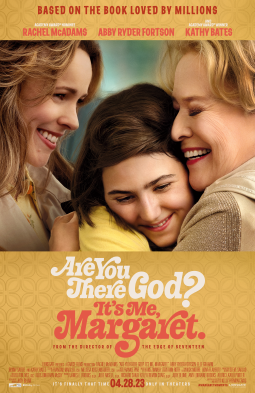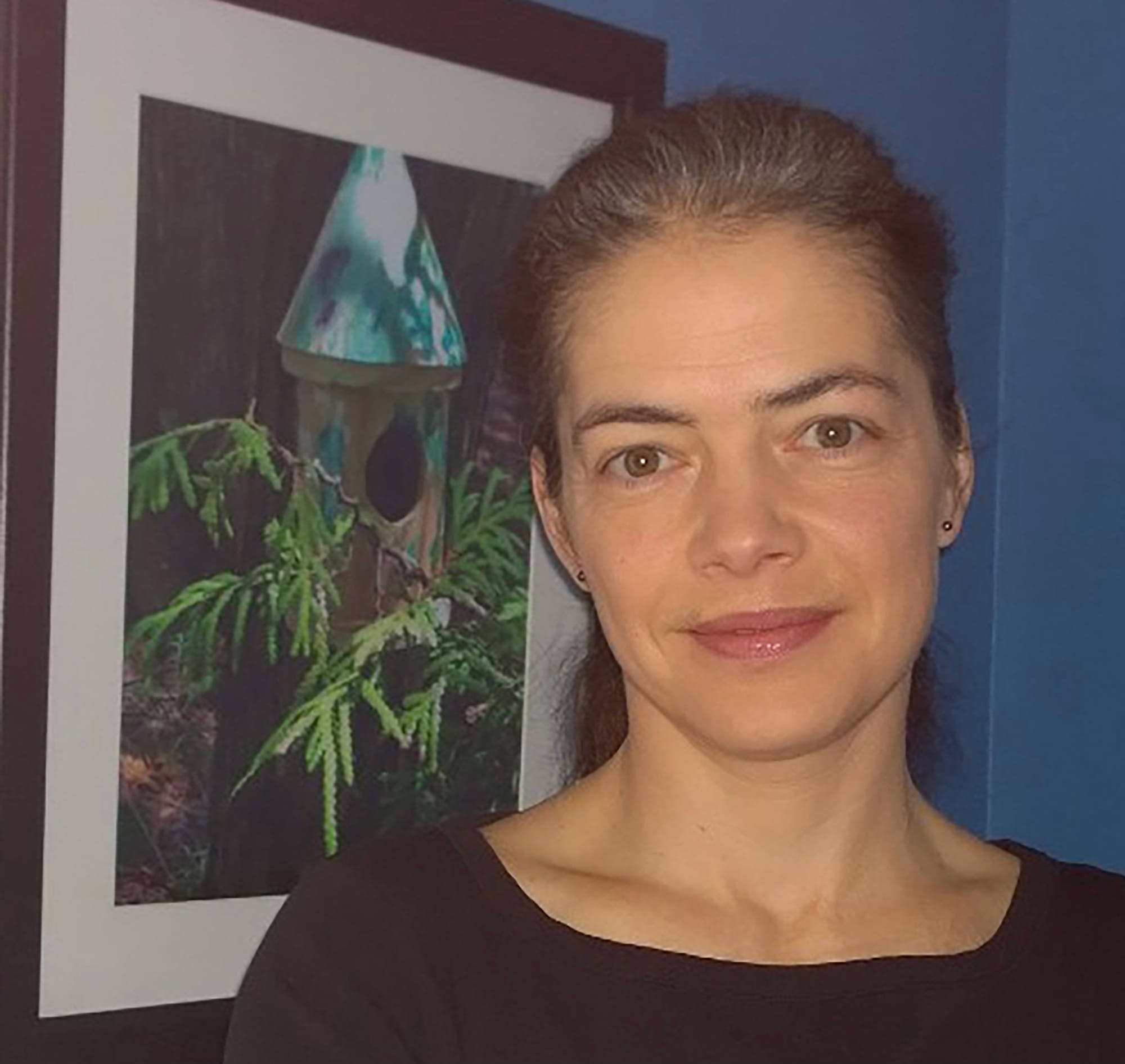Are you there, deity? It's me, them

The other day I took Middle Child to the movies because A) that child loves movie theatres and B) they’re actually such a keen observer that they’re secretly doing half the reviewing and note-taking work that I wind up using. Just don’t tell the kid. They’ll ask for more than a movie ticket and snacks. (I make ends meet by exploiting my children, yes. Isn’t that why one has kids?)
Anyway, we go once a month or so and for our latest outing we picked Are You There God? It’s Me, Margaret. I grew up in Quebec, as many of you already know, and in French Quebec in the 1980s we did not know or care who Judy Blume was. Never read anything she wrote. Not since then either — nothing against her; it just never crossed any of my various lists.
That’s about to change, because while the settings are outrageously dated the storytelling is lovely. I mean, it’s not especially subtle or complex. It’s lovely the way dulce the lèche is. You can’t really reproach it anything unless you eat too much of it but then if that’s the case it’s your own damn fault.
Me, I like dulce de lèche.
The actors are good, the directing is fine, the soundtrack works, it’s all lovely and nice.
But you know what I found difficult to take?
How fucking straight and binary this whole universe is.
There is not a single hint of anything that deviates from the mom-dad-married-kids model.
It brought me back to my childhood real hard, and I don’t mean that in a good way. When I was growing up we knew what gays were. Of course, we weren’t that backwards. I mean, we didn’t know any gays personally. None who were out, at any rate. But we knew of gays. In theory, we were fine with that.
For me that changed when I hit adulthood and moved out. After a couple of unhappy experiences with straight guys (including my first two sexual assaults) I found that finding gay roommates was about the most comforting thing I could do. So I did that, and it was great.
But even then — and we’re talking late 1980s — we didn’t acknowledge or know very much about gender diversity. Drag queens were a thing at the local gay bar but nowhere else. And in theory we knew trans people existed and we were fully supportive of them. But that was only within the gay circles in which I moved. Most other people only tolerated trans people at best.
At this point I want to ask you to raise your hand if, like me, you’re a person who has never felt welcome or comfortable in the binary world. For some of us, it’s about gender identity. For others, it’s how we express that. Some people — I’m among those — could never learn to deal with the social expectations associated with the “girl-woman” side of the binary coin. I fucking hate being called a lady. I hate the word with a passion because it gives status to women who behave the way patriarchal men want them to and the rest of us are… difficult.
I’m the child who said, “ew I don’t need that” when gifted a wedding guest book. I never — ever — wanted to expand my bust. I always hated having boobs. I am an intense lover and I look after those I care about like a mama bear, but I don’t want to be nurturing. I’m much more of a tough-loving, bitch-coach kind of mentor. I think nurturing makes people weak, unable to cope with the realities of the world. Loving, yes. Supportive? You bet. Not nurturing.
All this to say I don’t really fit in the traditional motherhood mold. I’m not nice. I love being difficult and abrasive. I don’t believe there ever was a lady who made anything progress. A lady’s job is to maintain the status quo.
But back to the movie.
In the end, our young heroine saw her dream come true and finally — finally! — had her period. Your first period is a big deal, no doubt about that. I remember mine, nearly four decades later. But as a happy ending it leaves much to be desired.
Many — maybe most — people fit nicely inside that gender binary. I envy them in some way. I would like to know what it’s like to feel comfortable in the majority. Maybe I’d hate it. Yeah, come to think of it I probably would. That’s how difficult I am.
The point is, while I have nothing against people who are comfortable in their ordinary binariness, I hate the forced normalization of that system because it makes those who don’t fit feel like there’s no place for them in society. And that’s wrong. I don’t want to take anything away from those who are happy being binary, except perhaps for the illusion that they are alone in the world.
They’re not. And the rest of us have a right to belong just the way we are.
Next month maybe I go see something easier. It shouldn’t be too hard.




